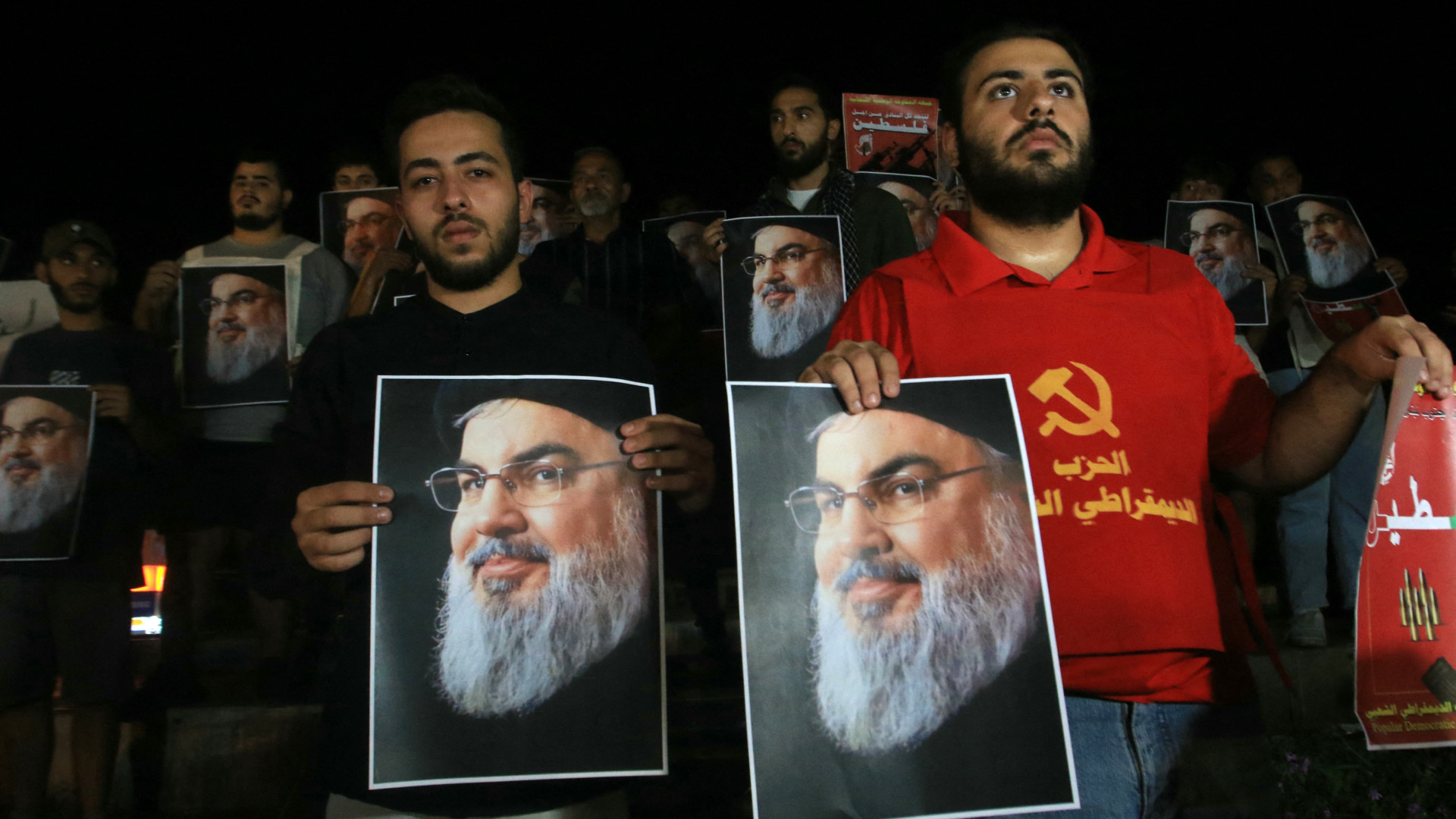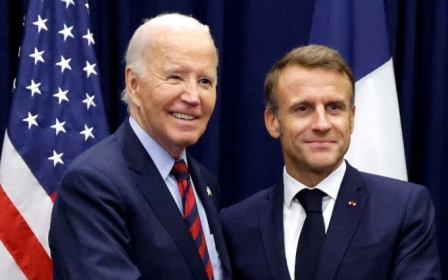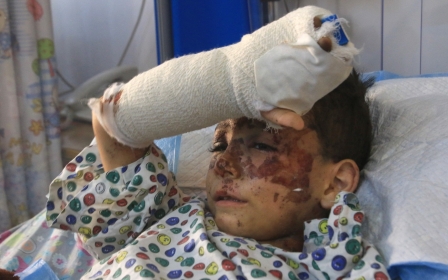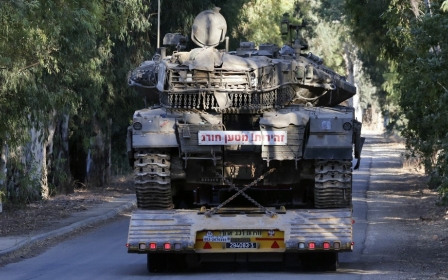Israel's hidden objective in Lebanon: Dismantling Hezbollah’s ballistic arsenal

Behind the arguments put forward by Israel to justify its deadly escalation in Lebanon lie strategic objectives.
The war of attrition that Hezbollah has imposed over the past 11 months has exhausted Israel on military, economic, and psychological fronts.
Israeli, American, and western experts have repeatedly highlighted this situation since the Lebanese Shia party opened the Lebanese-Israeli front on 8 October 2023.
In recent weeks, Israel has managed to shift the balance of power through a series of operations that culminated on 27 September with the assassination of the party's Secretary-General, Hassan Nasrallah, along with an unknown number of political and military leaders.
New MEE newsletter: Jerusalem Dispatch
Sign up to get the latest insights and analysis on Israel-Palestine, alongside Turkey Unpacked and other MEE newsletters
The dramatic escalation initiated by Israel began on 17 and 18 September with the detonation of pagers and walkie-talkies, injuring thousands of Hezbollah reservists and workers in the party's civil, administrative, media, and medical structures.
To achieve its goal of dismantling Hezbollah's capabilities, Israel has launched a war, sowing widespread death and destruction
On 20 September, an Israeli air strike in Beirut's southern suburbs killed Hezbollah's military chief and most of the elite al-Radwan force's leadership.
Israel signalled its intent to escalate as early as 30 July when it assassinated, in a strike in the heart of Hezbollah's stronghold, the party's top military commander, Fuad Shukr.
Israeli Prime Minister Benjamin Netanyahu and Israeli leaders have publicly outlined two goals for this quantitative and qualitative escalation: disconnecting the Lebanese front from the battle in Gaza and pushing Hezbollah away from the border to allow the return of tens of thousands of Israeli settlers evacuated from their border kibbutzim.
However, political sources in Beirut speak of "hidden objectives" that Israeli leaders have not publicly stated.
Netanyahu's deception
A source close to the Lebanese government told Middle East Eye: "Hassan Nasrallah had given the green light to Lebanese negotiator, Prime Minister Najib Mikati, through his ally Parliament Speaker Nabih Berri, to discuss a potential withdrawal of Hezbollah fighters a few kilometres from the border as part of a comprehensive agreement regarding the implementation of UN Resolution 1701 and a provisional ceasefire in Lebanon and Gaza."
"The French presented their proposal based on this information, but Netanyahu deceived them by pretending to be interested while secretly preparing Nasrallah's assassination", he added.
Follow Middle East Eye's live coverage of the Israel-Palestine war
The true objective of the Israelis goes beyond their stated goals. They seek to exploit the current circumstances to permanently shift the regional balance of power and restore Israel's dominance over all its enemies for years, if not decades, to come.
"The main goal is part of a more strategic Israeli-American plan aimed at dismantling or degrading Hezbollah's military capabilities, particularly its ballistic and drone arsenals," said Walid Charara, an international affairs columnist for the Lebanese daily al-Akhbar.
He added: "Regardless of Hezbollah's involvement in the Gaza conflict, weakening this arsenal is a strategic priority as it represents an increasingly severe challenge for Israel and the American order in the region."
Charara pointed to a column that the pro-Israel New York Times columnist Thomas Friedman wrote in November 2020 following the election of President Joe Biden titled, "Dear Joe, It's Not About Iran's Nukes Anymore". Friedman warned that the ballistic and drone capabilities of Iran, Hezbollah, and Israel's enemies in general were problematic for both Israel and the Pentagon.
To achieve its goal of dismantling its capabilities, Israel "has launched a war, sowing widespread death and destruction with the aim of structurally weakening Hezbollah", he continued.
Despite the decapitation of its political and military leadership and thousands of Israeli airstrikes, Hezbollah has not raised the white flag. Its military units continue to fire volleys of rockets into Israel every day, its media outlets remain operational, and its social institutions remain active on the ground.
"I know, and the Israelis and Americans know it, too, that Hezbollah has revealed only a fraction of its military capabilities", a former Lebanese intelligence officer, who requested anonymity, told MEE.
"This war will end in failure for Israel. So far, Israeli society, ethnically stratified and politically and economically dominated by Ashkenazi elites, has supported the belligerent policies of its leaders. But when they realise that the long-term cost - both economic and human - is exorbitant, they will turn against the war, forcing the Israeli government to reconsider its position and backtrack", concluded Charara.
The views expressed in this article belong to the author and do not necessarily reflect the editorial policy of Middle East Eye.
Middle East Eye delivers independent and unrivalled coverage and analysis of the Middle East, North Africa and beyond. To learn more about republishing this content and the associated fees, please fill out this form. More about MEE can be found here.






